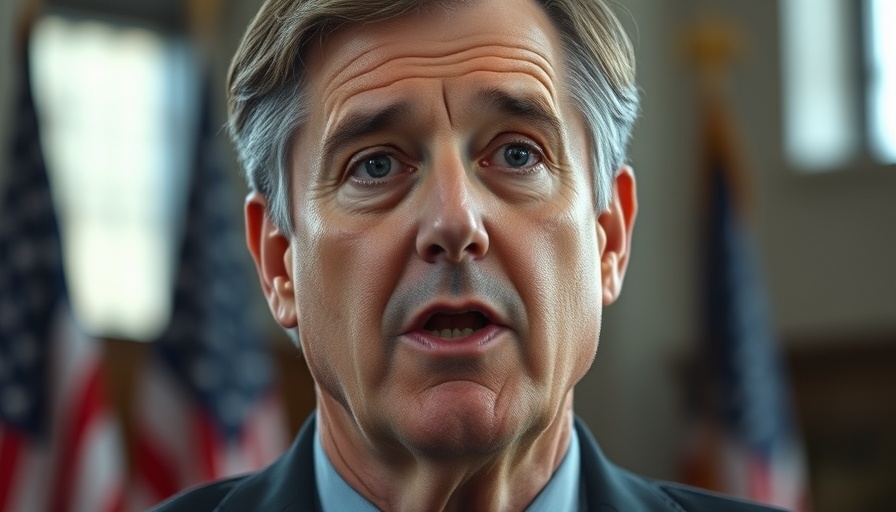
Trump's Unprecedented Claims on Federal Control
Recently, President Donald Trump made a controversial statement claiming that the White House has the authority to run major U.S. cities, such as Washington, D.C. and New York City, particularly in cases where they oppose his administration's policies. This assertion raised eyebrows not only because of its audacity but also due to its profound implications for the governance of American cities, which are usually managed by elected officials.
The Basis of Local Government
The remarks came as part of a broader dialogue about crime and governance, with Trump stating, "We have tremendous power at the White House to run places where we have to." His claim emphasized a perspective that might overlook the democratic processes in place, suggesting that federal authority could substitute elected local governance. Washington, D.C., which operates under its own elected mayor and city council, has never been subject to a federal takeover without significant national unrest. If initiated, such a takeover could severely disenfranchise voters, igniting discussions about D.C.'s statehood and its residents' rights.
Concerns Over Disenfranchisement and Civil Rights
Trump's approach raises critical questions for civil rights advocates. The possibility that the federal government could assume control of cities poses risks for local communities, particularly marginalized groups who already face significant legal and social hurdles. A federal takeover could disengage citizens from the democratic process and create further division between government and community.
Comparative Examples from History
Historically, there have been instances where the federal government intervened in local matters, typically during crises such as natural disasters or civil unrest. Yet, these interventions have more often than not been temporary or reactive, in contrast to the proactive takeover Trump suggests. The federal government's past responses, such as deploying national troops to enforce desegregation, illustrate the delicate balance between federal authority and local autonomy—a balance that could be upset by Trump's recent statements.
Public Opinion and Reactions
This comment has received mixed reactions across the political spectrum. Advocates for local governance have voiced severe concerns over what they perceive as an overreach of federal power. Furthermore, Trump’s remarks about New York City’s Democratic nominee, Zohran Mamdani, labeling him as incapable, highlights a broader narrative of political disdain for left-leaning governance. Observers note that despite Trump's historic claim to power, his views are increasingly seen as polarizing, stirring the waters of public discourse.
Future Implications for Governance
As the political climate continues to evolve, the implications of Trump's statements could yield long-lasting effects. With ongoing discussions around immigration, civil rights, and government authority, advocates must remain vigilant. Understanding how such comments influence local governance can help frame policy discussions as well as empower communities in their advocacy efforts. Attorneys and activists alike should take these statements into account, ensuring that civil liberties remain at the forefront of any debate surrounding local versus federal governance.
Engage with local civil rights organizations or legal associations to further the discussion on the implications of federal overreach.
 Add Row
Add Row  Add
Add 

 Add Row
Add Row  Add Element
Add Element 




Write A Comment